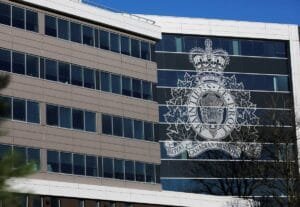Burkina still battling insecurity one year after coup

When he seized power, Captain Ibrahim Traore set himself “two to three months” to improve security in Burkina Faso, but one year on, jihadist attacks still plague the West African nation.
The interim president said at the time of the September 30, 2022 putsch that resolving “several small logistical problems” as well as “consideration” within the army would allow them to regain control.

Since then, the new regime has focused on a strong security response to the attacks by groups affiliated to Al-Qaeda and Islamic State.
It has undertaken a massive recruitment drive for the Volunteers for the Defense of the Fatherland (VDP), a civilian volunteer force that supports the military.
It has also acquired drones and helicopters, sought to “neutralize” the jihadists and seen Traore out and about in the field, motivating the troops.
“We must recognize that the problem which justified Captain Traore’s bursting onto the national political scene is far from resolved,” the privately owned L’Observateur Paalga newspaper said in an editorial.
At 34, Traore was the world’s youngest leader when he was sworn in as interim president, vowing to win back territory and support a transition leading to elections in July 2024.
“Ibrahim Traore’s arrival sparked great hope among the people faced with the security situation,” Lassina Diarra, a specialist on security in the Sahel told AFP.
“A lot of efforts were made on the ground to take control of areas but the situation has deteriorated considerably.”
Grim statistics confirm the picture.
More than 17,000 people have died in attacks since 2015, more than 6,000 just since the start of this year, according to a count by an NGO monitor called the Armed Conflict Location and Event Data Project (ACLED).
The army and VDP are the main targets, but civilians pay a heavy price too — more than 6,000 schools are closed in Burkina Faso, or nearly one in four, the Norwegian Refugee Council says.
- ‘No failure’ –
Two million people have been uprooted by the violence since 2015.
The government claimed at the end of last month that more than 190,000 people had returned to their homes after it chased jihadists from the areas.
Regime supporters welcome what they call strong decisions by Traore.
“There’s no failure,” Lassane Sawadogo, coordinator of the pro-regime movement the Front for the Defense of the Homeland, said.
“Our soldiers were under-equipped for the fight against terrorism but with the arrival of Captain Traore, we have acquired enormous resources.”
However, some have condemned alleged abuses by the VDP or armed forces.
In April, the Collective against Impunity and Stigmatization of Communities said that 136 people including women and children had been killed in the northern village of Karma by men dressed in army uniform.
An inquiry was opened, and the government strongly condemned “vile and barbaric acts” but Traore warned against jumping to conclusions in accusing the army of being behind the killings.
- New partners –
Concerns about the erosion of personal freedoms have also been voiced.
The Unit for Industrial Action, which groups the main trade unions, points to forced recruitment, abductions and the suspension of media.
French media outlets RFI, France 24 and Jeune Afrique have been suspended in the country and correspondents from newspapers Liberation and Le Monde expelled in the last 12 months.
Under Traore, relations with France broke down, prompting French forces that had been helping the under-equipped Burkinabe army to quit the country in February.
The junta has diversified its international partners, including contacts with Russia, Iran and Venezuela.
Earlier this month, it also signed a mutual defense pact with Mali and Niger, whose military leaders have also come to power in coups since 2020.
“Captain Traore has freed us from the yoke of imperialism,” Lassane Sawadogo said.
“He worked a lot during the 12 months and we hope even more in the months to come.”
The regime can still count on support — late on Tuesday, thousands took to the streets of the capital Ouagadougou to “defend” Traore after rumors on social media of a coup.
The military government said the next day it had thwarted an attempted coup. Four officers have been arrested.
by Armel Baily
©️ Agence France-Presse














